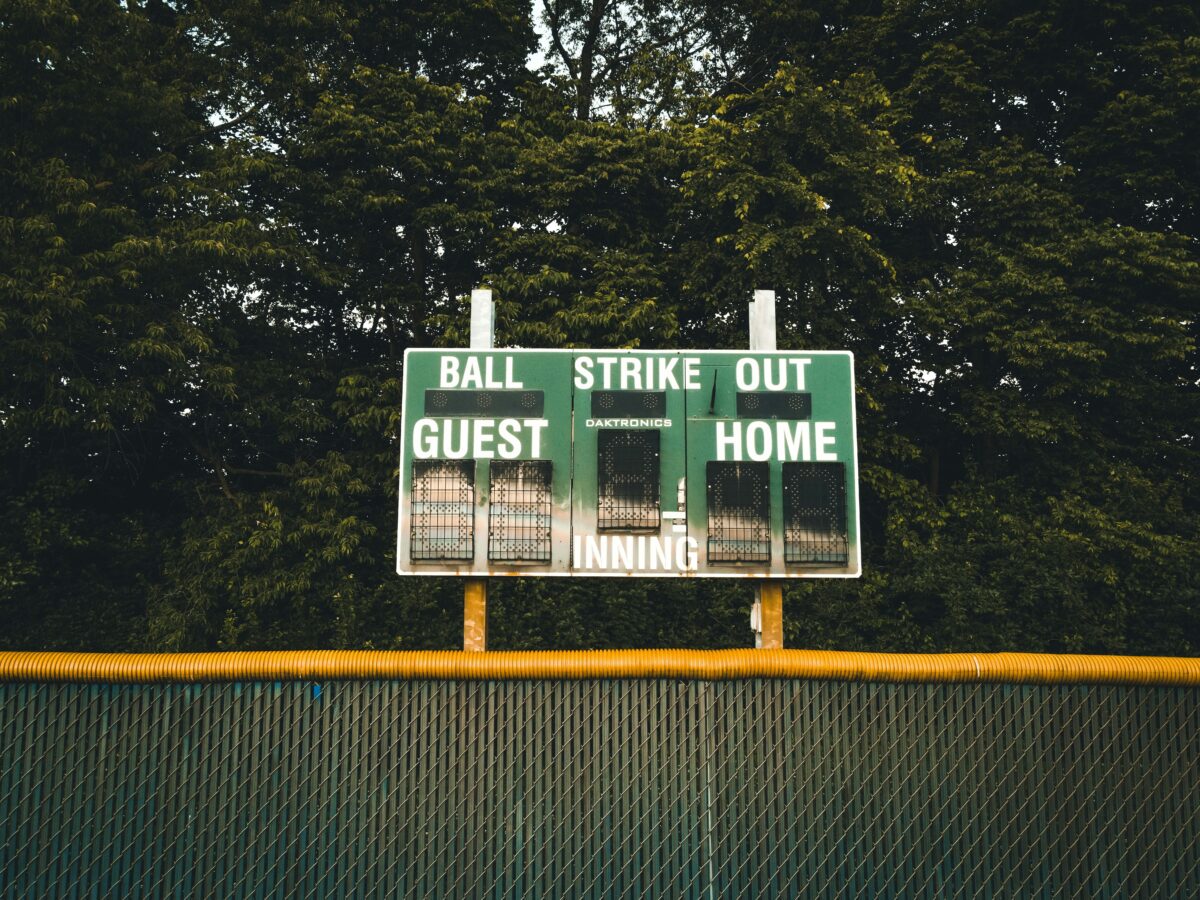“Play ball!” Shouts the umpire, followed by a swing, and the first strike of the game. The umpire points to his side, making a loud noise. Another pitch came, then another swing, making the ball fly towards the stands. “Heads up!” calls the rest of the crowd, until it plops on the ground, and one of the dads stands up to grab the ball.
Neil chuckled to himself. He didn’t really like baseball, but he respected the nature that came with it. Everyone who came to the games knew exactly what to do, with little to no telling, almost as if they’ve known it their whole lives. Of course, Neil knew that baseball rules weren’t really ingrained into the blood of every suburban family, but it damn nearly could be.
What troubled Neil the most was seeing this overwhelming unity and thinking that it could be peace — yet a peace he couldn’t feel himself part of. He wasn’t that great at baseball; neither as a shortstop, at first, as a batter, as a pitcher, or as any part of that game loved so dearly by the United States — all he was really good at was observing. Not just the game, but the people, their behaviors, their unconscious woes being woven into the game without even realizing it.
“Strrrrike three! Yeeerrrrr out!” Yells the umpire. The stands erupt in a cacophony of cheers and wails. Neil tilted his head at the situation. Did peace also include disagreements? Surely, it wouldn’t be peace if one of the parents got into a scuffle with the umpire. What imaginary line must there be understood for there to be enough peace for this game? What are the necessary rules required for peace? Can those rules always be something everyone can agree on?
Another strike is called, and our side of the stands erupts in yelling. “That was way too high!” Says one dad.
Another pitch thrown, this time a ball. “That was a strike!” Says the same dad. His wife pushes him on the shoulder, and he shakes his head.
Neil stands up, walking away from the stands. Whatever their peace was, it surely was conditional. Though it may not be there, or anywhere close for that matter, Neil walked towards the trees and the birds, seeing them flutter and sing, merely dancing on the branches, looking for nuts and insects to munch on. Was that peace?
“Heads up!” Yelled the crowd. The ball hit the tree, scaring the birds away, leaving Neil in silence. He picks up the ball, and looks towards the stands once more.
“Toss it back!” Yell the players. Neil chuckles, hurrying on over to the field. Maybe it wasn’t the right time for peace. Or maybe it was right in front of him. Whatever it was, they needed the ball, and it was Neil’s turn to give it back.“Play ball!” Shouts the umpire, followed by a swing, and the first strike of the game. The umpire points to his side, making a loud noise. Another pitch came, then another swing, making the ball fly towards the stands. “Heads up!” calls the rest of the crowd, until it plops on the ground, and one of the dads stands up to grab the ball.
Neil chuckled to himself. He didn’t really like baseball, but he respected the nature that came with it. Everyone who came to the games knew exactly what to do, with little to no telling, almost as if they’ve known it their whole lives. Of course, Neil knew that baseball rules weren’t really ingrained into the blood of every suburban family, but it damn nearly could be.
What troubled Neil the most was seeing this overwhelming unity and thinking that it could be peace — yet a peace he couldn’t feel himself part of. He wasn’t that great at baseball; neither as a shortstop, at first, as a batter, as a pitcher, or as any part of that game loved so dearly by the United States — all he was really good at was observing. Not just the game, but the people, their behaviors, their unconscious woes being woven into the game without even realizing it.
“Strrrrike three! Yeeerrrrr out!” Yells the umpire. The stands erupt in a cacophony of cheers and wails. Neil tilted his head at the situation. Did peace also include disagreements? Surely, it wouldn’t be peace if one of the parents got into a scuffle with the umpire. What imaginary line must there be understood for there to be enough peace for this game? What are the necessary rules required for peace? Can those rules always be something everyone can agree on?
Another strike is called, and our side of the stands erupts in yelling. “That was way too high!” Says one dad.
Another pitch thrown, this time a ball. “That was a strike!” Says the same dad. His wife pushes him on the shoulder, and he shakes his head.
Neil stands up, walking away from the stands. Whatever their peace was, it surely was conditional. Though it may not be there, or anywhere close for that matter, Neil walked towards the trees and the birds, seeing them flutter and sing, merely dancing on the branches, looking for nuts and insects to munch on. Was that peace?
“Heads up!” Yelled the crowd. The ball hit the tree, scaring the birds away, leaving Neil in silence. He picks up the ball, and looks towards the stands once more.
“Toss it back!” Yell the players. Neil chuckles, hurrying on over to the field. Maybe it wasn’t the right time for peace. Or maybe it was right in front of him. Whatever it was, they needed the ball, and it was Neil’s turn to give it back.




